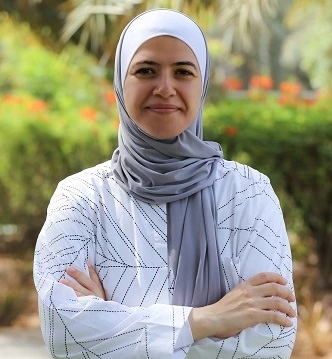Artificial Intelligence in women's health: is it the future?
Artificial Intelligence has become an integral part of our modern lives. For women, who make up half of the world's population, it represents a significant contribution to this unprecedented technological leap. In this article, we will discuss the role of artificial Intelligence in women's health and how it can be helpful in family planning, monitoring fetal growth, and other essential aspects of women's lives.


What is Artificial Intelligence?
This term we hear every day refers to complex computer systems capable of performing human-like tasks such as image recognition, sound analysis, and problem-solving. It is a comprehensive term encompassing various technologies like machine learning, deep learning, and natural language processing.
Despite artificial Intelligence being associated with conspiracy theories and science fiction movies, it is a modern technology expanding daily to cover new aspects of our lives.
The Role of Artificial Intelligence in Women's Healthcare
Artificial Intelligence primarily relies on the information and data fed into these computer systems. However, health data is often general and not specifically tailored to women, limiting the use of artificial Intelligence in women's healthcare due to a lack of sufficient data on women's health. One notable achievement of artificial Intelligence in women's healthcare is its ability to detect precancerous cells by studying the results of several cervical smears from the same woman. Additionally, numerous medical studies and research efforts are attempting to use artificial Intelligence in the early detection of breast cancer, osteoporosis, and other women's health conditions.
What is Femtech?
A recent term in entrepreneurship in the last few years is Femtech. It is a branch of businesses specializing in women's health, particularly in the women's healthcare sector. These companies establish platforms providing educational content about women's health and tech tools to help women track their menstrual cycle, ovulation, and pregnancy. Omooma serves as a leading example in the Arab world in Femtech.
At Omooma, we strive to provide the latest medical information from experts in various fields related to women's and child health and diverse lifestyle topics that concern women and families in general.
Using Artificial Intelligence to Serve Women's Health
Women's health is rich with dates, data, and extensive information, and women need to use smart tools and Artificial Intelligence to help them track all this data. This enables women to obtain information about their menstrual cycle, ovulation, and more. Here are the prominent applications and calculators that women use:
Period tracking Apps
These applications help in tracking the menstrual cycle, serving primarily as a diary that records the menstrual cycle's dates. This helps in planning for travel or other activities and assists in detecting any irregularities in the menstrual cycle that may occur suddenly, reminding the user to consult a doctor if necessary.
Ovulation Trackers
Knowing the days of ovulation is crucial for women attempting to conceive. Ovulation calculators help predict ovulation days by analyzing inputted data such as the menstrual cycle's date, duration, and the interval between cycles, among other factors.
Pregnancy trackers
This smart tool, easily downloadable on your mobile phone, provides comprehensive information about the fetus's development inside the womb. It offers weekly updates on the stages of pregnancy and additional features such as reminders for prenatal check-up appointments and reminders to take prenatal vitamins. The calculator can also predict the due date based on the data provided when creating a personal account.
Fitness Applications
Regular physical exercise is essential for physical and mental health and is a means to aid weight loss. These applications provide workout videos that can be done at home. Additionally, they facilitate calculating body mass and muscle mass to help set weight loss goals and improve physical health.
Diet Apps
There may be applications specific to certain diets, such as Keto, suggesting suitable meals for the diet and providing easy recipes. They also offer shopping lists and may recommend products to help prepare these meals. Alternatively, a general application may suggest the most suitable diet based on artificial intelligence tools, considering age, physical activity, and weight loss goals.
Artificial Intelligence remains among the modern and rapidly evolving technologies. While still in its early stages, it is a technology that can be used on a broad scale in the field of women's health and reproductive health.






